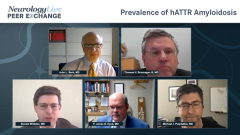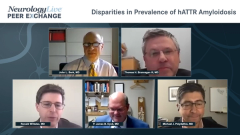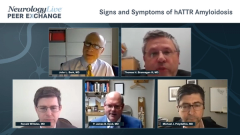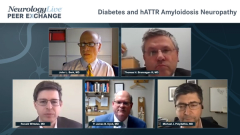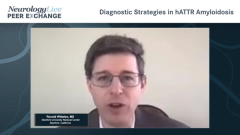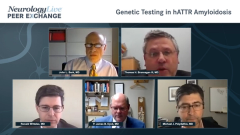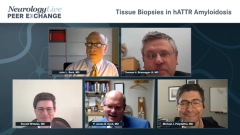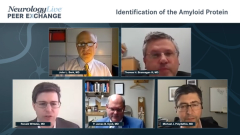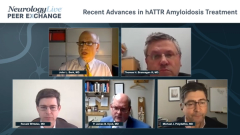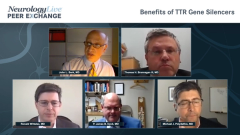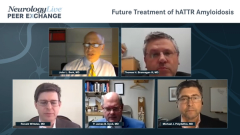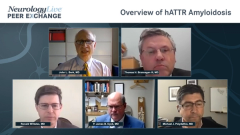
Genetic Testing in hATTR Amyloidosis
Expert panelists provide recommendations for gene panel testing with genetic counseling for evaluation of patients with hereditary ATTR amyloidosis.
Episodes in this series

John L. Berk, MD: Dr Brannagan, you mentioned genetic testing, and both Alnylam Pharmaceuticals Inc and Akcea Therapeutics, Inc have programs. Do you use those programs? If not, how do you do your testing?
Thomas H. Brannagan III, MD: Actually, I have been using their testing, and it’s very useful to screen for; I believe the Alnylam program uses Invitae Corporation. I believe they have 73 genes for inherited neuropathies. The Ionis Pharmaceuticals, Inc program, which uses the Compass program, has 80 genes; it’s actually very easy to use. We do genetic counseling beforehand, and then the patients, if they agree and consent, can either get a blood draw or a spit test. Usually the turnaround on the testing is about 3 weeks. It is a next-generation test. This does not relate to amyloid, but they actually have very good coverage for 1 very common inherited form of Charcot-Marie-Tooth disease, which is actually a duplication and a deletion unlike many other next-gen programs.
John L. Berk, MD: Let’s talk about genetic counseling. Why do we need to be concerned about genetic counseling? It’s a genetic disease; it’s important to make the diagnosis. What’s with counseling?
Thomas H. Brannagan III, MD: It’s a good idea to do counseling in both symptomatic and also asymptomatic patients. In my opinion it’s important in both, but even more important in asymptomatic patients. Frequently we have a family member who wants to have their family members tested, and there are some implications of the testing that often we can spend some time with. The genetics counselors are particularly trained to explore patients’ personal thoughts on the impact of a positive result as well as the impact on life insurance, disability policies, and so forth. I strongly encourage it. In New York it’s actually required to do genetics counseling. It doesn’t have to be done with a genetics counselor, but that often works out best in my experience.
John L. Berk, MD: There are federal protections. The Genetic Information Nondiscrimination Act of 2008 is designed to protect people from discrimination with regard to health insurance and employment. However, as Dr Brannagan just mentioned, it does not cover state-regulated programs for long-term disability, life insurance, or long-term care policies. It’s really important that people understand what rights they have and what rights are not protected before they get genetic testing, so I agree with you.
P. James B. Dyck, MD: The variable penetrance of the disease is also an important issue. Just because you have a positive genetic test does not mean you will ever develop symptomatic hATTR [hereditary amyloidosis]. Somebody has to think that through too, before being tested.
John L. Berk, MD: Yeah, it sounds a little absurd, but perhaps some people wonder whether they were adopted because their parents never expressed disease. It could simply be either a lack of diagnostics or the penetrance was incomplete; you’re absolutely right.
John L. Berk, MD: Thank you for watching this NeurologyLive® Peer Exchange. If you enjoyed the content, please subscribe to our e-newsletters to receive upcoming Peer Exchanges and other great content right in your in-box.
Transcript Edited for Clarity
Newsletter
Keep your finger on the pulse of neurology—subscribe to NeurologyLive for expert interviews, new data, and breakthrough treatment updates.

